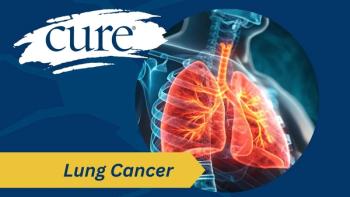
Delaying Cancer Treatment May Increase Risk for Mortality
As treatment delays become more common – especially with the COVID-19 pandemic – delays as much as four weeks can impact the risk for mortality in seven different types of cancer.
Each four-week delay in cancer treatment was associated with an increased mortality risk, which was observed in all common forms of cancer treatment including surgery, systemic treatment and radiotherapy, according to study results published in The BMJ.
“What our study added was that we were able to show just how important this
Hanna mentioned that it was important to conduct this study, especially during the COVID-19 pandemic. “There have been so many innovations in health care, specifically in cancer care, and so it’s more important than ever, especially with the pandemic we’re in, to prioritize effectively because resources are increasingly limited, and there are many strains on the health care system, specifically thinking of the pandemic, which really inspired this study,” said Hanna.
“We’ve seen cancer patients waiting for ‘elective surgeries’ longer than they would have usually, and we were concerned about the waits that people were experiencing. As such, we wanted to provide very specific information so that decision-makers could understand the consequences of their decisions because hard decisions need to be made, but they’re made even harder if you don’t know the consequences on people for those decisions you make.”
To assess the impact of treatment delays on mortality, researchers performed a systematic review and meta-analysis on data from 1,272,681 patients from 34 previously conducted studies on seven different cancer types: bladder, breast, rectum, colon, cervix, lung and head/neck. Several indications included in this study were curative, neoadjuvant (first-line treatment) and adjuvant (additional therapy after initial treatment) for radiotherapy, surgery or systemic treatment of the aforementioned cancers.
The outcome of interest was a hazard ratio, or a measurement of the effect of treatment delay on mortality, for each four-week increase in treatment delay.
Hanna mentioned that studying the effect of treatment delays on mortality in patients with cancer is a unique area as its impact is not immediately present. “Cancer deaths caused by (treatment) delay are, in some ways, invisible in the sense that they don’t happen right away,” said Hanna. “If there are problems in your system and someone with severe chest pain doesn’t go to the emergency room and seek help, you might see an effect on that person’s outcomes in a matter of days or weeks, but with cancer, the impact of delay might not be visible for many years to come, so if we waited to measure the impact of, say, the pandemic on cancer outcomes, by the time we could effectively and completely measure it, it would be too late to really do anything about it.”
Among the studies included in this meta-analysis and systematic review, high-validity data were not available for five radiotherapy indications and for cervical cancer surgery. Despite this, there was a significant link between treatment delay and increased mortality for 13 of the 17 indications.
These findings were consistent for surgery, as shown with each four-week delay for colectomy (removal of all or part of the colon) and breast surgery, for example. Estimates on the association between treatment delay and mortality varied for systemic treatment. Although high validity data were limited for curative radiotherapy, they supported the association of treatment delay and mortality for head/neck cancer and for adjuvant radiotherapy for cervical cancer.
High validity studies were also not found regarding the delay between diagnosis and initiation of neoadjuvant therapy for rectal cancer and four other indications for curative radiotherapy.
“In terms of how this might impact patients, there might be an impact in their decision making and, of course, there may be an emotional impact, too,” said Hanna. “In terms of the emotional impact, perhaps our study would be justifying to how they’re feeling about the time that they’re
For more news on cancer updates, research and education, don’t forget to




